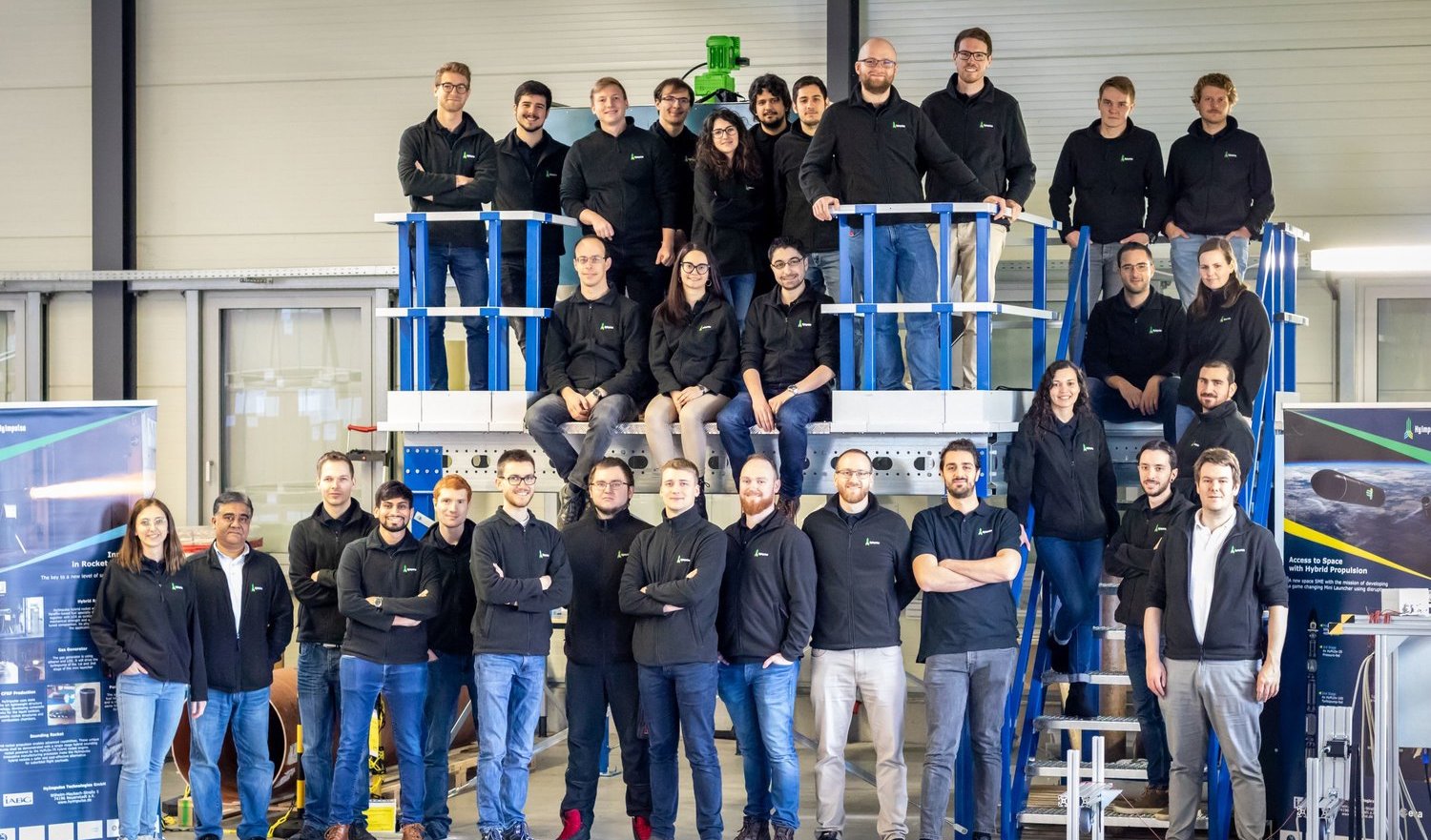WASHINGTON — A startup formed by rocket engineers from the German space agency DLR is targeting late 2022 for the first flight of a small launch vehicle designed around hybrid engines.
HyImpulse is developing a three-stage rocket capable of sending 500 kilograms to a 400-kilometer low Earth orbit. The 40-person company is bankrolled by Rudolf Schwarz, chairman of German technology company IABG, and has a 2.5 million-euro ($3 million) grant from the European Commission to advance its launcher technology, Christian Schmierer HyImpulse co-CEO, said in an interview.
HyImpulse is seeking to differentiate itself by using hybrid engines that run on a paraffin-based fuel and liquid oxygen. The combination of fuels should result in a rocket with simpler hardware than a liquid-fueled system and greater safety than solid fuels, Schmierer said.
The startup’s future vehicle is based on technologies Schmierer and three of HyImpulse’s other co-founders developed as students at the University of Stuttgart in Germany, where they launched a sounding rocket called Heros 3 to a height of 32.3 kilometers, setting an altitude world record in 2016 for hybrid student rockets.
“We saw with interest all these developments in the small launch industry, but we saw that no one was using hybrid rockets,” Schmierer said. “We thought we could make a change.”
That team went on to further develop hybrid propulsion and turbopump technology at the DLR Institute of Space Propulsion before leaving the agency in 2018 to form HyImpulse, he said.
HyImpulse plans to launch another sounding rocket in March from the Esrange Space Center in Sweden, which will test the 75-kilonewton engine the company plans for its orbital vehicle, said Mario Kobald, HyImpulse CEO.
Once tested, the company plans to move ahead with an orbital launcher that would use 12 of that engine — eight on its first stage, and four on its second stage — plus four smaller but otherwise identical engines on its third stage, Schmierer said.
Other companies using hybrid rocket engines include Virgin Galactic, whose SpaceShipTwo suborbital spaceplane uses a single hybrid engine, and Norwegian aerospace company Nammo, whose Nucleus sounding rocket uses liquid hydrogen peroxide and a rubber-like material as propellant.
HyImpulse plans to sell launches for 10 million euros, Schmierer said. The company hopes to reach eight launches a year in 2024, and a double-digit number of launches annually long term, he said.
Esrange will likely be the location for HyImpulse’s first orbital launch, though Schmierer said the company is also evaluating emerging spaceports in the U.K. and Australia.
HyImpulse is competing with German startup Isar Aerospace and the OHB-backed Rocket Factory Augsburg in a DLR-led competition for small launch funding. Each company received 500,000 euros in July to further develop their vehicles ahead of two test launches in the 2022-2023 timeframe. The DLR will award 11 million euros to one of the three companies in 2021, and will compete a second 11 million prize in 2022 to stimulate domestic small launcher development.
Schmierer said HyImpulse plans to conduct a full-duration engine hot firing this fall in anticipation of competing for the next DLR prize. HyImpulse has been completely separate from DLR since its founders left the agency’s Lampoldshausen engine test facility, Schmierer said.
